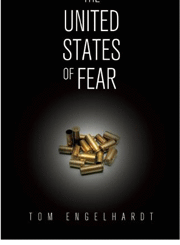
Obama Breaks New Ground When It Comes to War With Iran
Source: Tom Dispatch
When I was young, the Philadelphia Bulletin ran cartoon ads that usually featured a man in trouble — dangling by his fingers, say, from an outdoor clock. There would always be people all around him, but far too engrossed in the daily paper to notice. The tagline was: “In Philadelphia, nearly everybody reads the Bulletin.”
Those ads came to mind recently when President Obama commented forcefully on war, American-style, in ways that were remarkably radical. Although he was trying to ward off a threatened Israeli preemptive air strike against Iran, his comments should have shocked Americans — but just about nobody noticed.


